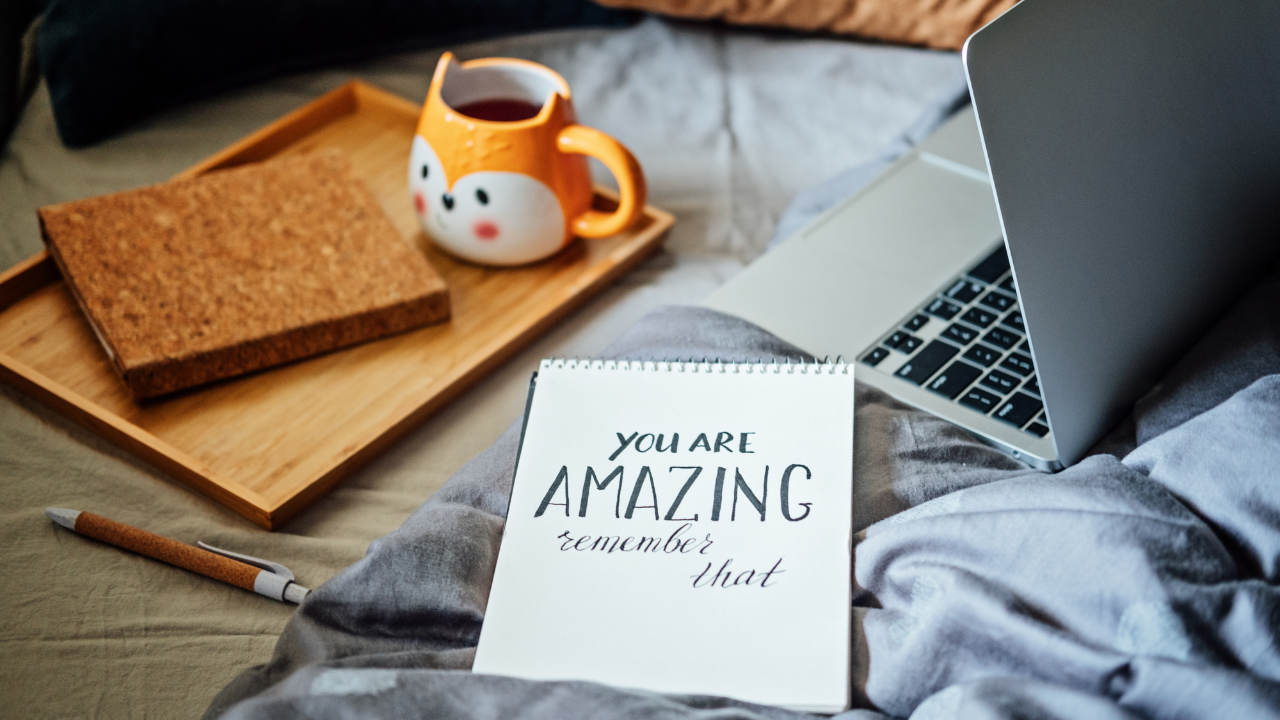Breaking Free: The Key To Mastering Anxiety
Nov 01, 2023
Introduction
Are you one of those individuals who struggle with anxiety, which seems to take control of your life and steal precious moments from you? If so, you're not alone. In this article, we'll delve into the journey of regaining confidence and control over anxiety without relying on medication. I'm Diante Fuchs, and as the owner of The Unstuck Initiative, I've spent over a decade helping people like you break free from anxiety's grip. Let's explore how ordinary people have reclaimed their confidence and control over anxiety, without the need for medication.
Medication: A Limited Solution
Firstly, let's acknowledge that medication can provide relief for some individuals dealing with anxiety. However, it's essential to emphasize the word "some." How often have you heard of someone taking anxiety medication, becoming anxiety-free, discontinuing the medication, and living without anxiety afterward? It's a rarity. Most people I work with who try medication experience only a slight improvement in mood due to the serotonin boost, but the core anxiety remains.
Therapy: A Partial Solution
Therapy is undoubtedly valuable for addressing various life issues and uncovering limiting beliefs. However, when it comes to anxiety, it's not always a complete solution. Many therapists lack extensive expertise in dealing specifically with anxiety. Furthermore, therapy can be expensive and time-consuming, making it inaccessible for some.
Breathing Techniques and Meditation: Helpful But Insufficient
Breathing techniques and meditation are powerful tools to manage anxiety symptoms, but they don't always eliminate anxiety entirely. In fact, some individuals feel even more anxious when attempting these practices. While these strategies have their merits, they don't provide a comprehensive solution to anxiety.
Shifting the Focus: Responding Differently to Anxiety
So, if medication, therapy, and relaxation techniques aren't the ultimate solutions, what is? The key lies in how we respond to anxiety. Anxiety is a natural and universal human experience. Everyone, from birth onward, encounters anxiety to some degree. The difference between those who exude confidence and control and those who feel consumed by anxiety is in their response to it.
Confident individuals don't obsessively worry about when anxiety might strike next. When anxiety does surface, they don't react with fear, overwhelm, or the belief that they won't cope. Instead, they respond with confidence and acceptance, acknowledging that it's okay to feel anxious and choosing to move forward despite it.
My Personal Evolution as a Psychologist
As a practicing psychologist for over a decade, my approach to working with clients has evolved significantly. Initially, I followed the conventional therapy path, focusing on identifying current life stressors and implementing strategies for immediate change. While this approach helped a portion of my clients, many remained stuck.
It was disheartening to see three-quarters of the individuals I worked with struggling to break free from anxiety. At that time, I couldn't pinpoint the missing piece of the puzzle. I even referred some clients to other professionals because I felt unequipped to help them fully.
A Personal Journey Ignites Understanding
In 2014, my husband faced his own battle with anxiety. His experience mirrors the struggles many of you might relate to. He was running his plumbing business when a contractor questioned his work. In that moment, he felt an intense chest pain and difficulty breathing. His immediate concern was not anxiety but a potential health issue.
For weeks, he endured this pain without discussing it much at home. He visited doctors who prescribed reflux medication due to his chest pain, but the anxiety persisted. Eventually, one night, he confessed his fear of dying from a rare lung disease. This fear consumed him, and he believed it would destroy our family.
In that pivotal moment, I asked him what made him think he was dying. I pointed out that he was breathing fine when he slept, a clear sign that it might not be a constant health condition. It was then that he began to consider anxiety as the root cause. Multiple medical consultations, medications, guided meditations, and even lifestyle changes had not alleviated his anxiety.
Shifting Our Response to Anxiety
My husband's journey forced us to change our perspective. As a psychologist, I realized that traditional approaches weren't enough. We had to embrace anxiety and accept it for what it was—an ordinary emotional response. We stopped trying to fight it or make it go away.
Instead, we started saying, "It's okay to be anxious right now." We accepted that anxiety was part of our current experience. This shift allowed us to detach from anxiety, knowing that it wouldn't last forever. Over the years, we immigrated, had a second child, and my husband started a business. Anxiety remained a part of life, but it no longer held him hostage.

Conquering Anxiety: It's About Your Response
In your struggle with anxiety, have you noticed that it's not the actual situations or things that terrify you? Instead, it's the fear of becoming anxious in those situations. Whether it's driving, flying, leaving your comfort zone, or facing large crowds, the root fear is not of the activity itself but of experiencing anxiety during it.
Even successful individuals I work with, who appear to have it all together, battle anxiety in various forms. Some dread public speaking, others fear long flights, and many avoid promotions because of networking events. The common thread is the fear of anxiety, not the situations themselves.
Embracing Change
Understanding that nothing in life remains constant is crucial. Everything evolves and changes, including our emotional states. Embracing this impermanence can help us detach from anxiety's grip. When you realize that anxiety won't last forever, you can begin to change your response to it.
Conclusion
Reclaiming confidence and control over anxiety doesn't require medication, therapy, or complex relaxation techniques. Instead, it's about shifting your response to anxiety. Accept it as a natural part of the human experience, knowing that it will pass. When you respond to anxiety with confidence and acceptance, you regain control over your life.
So, as you navigate your journey with anxiety, remember that it's not the thing itself that scares you—it's how you'll feel when faced with it. Embrace change, and you'll discover that anxiety no longer has the power to steal your moments. It's time to rewrite your relationship with anxiety and step into a life of confidence and control.
